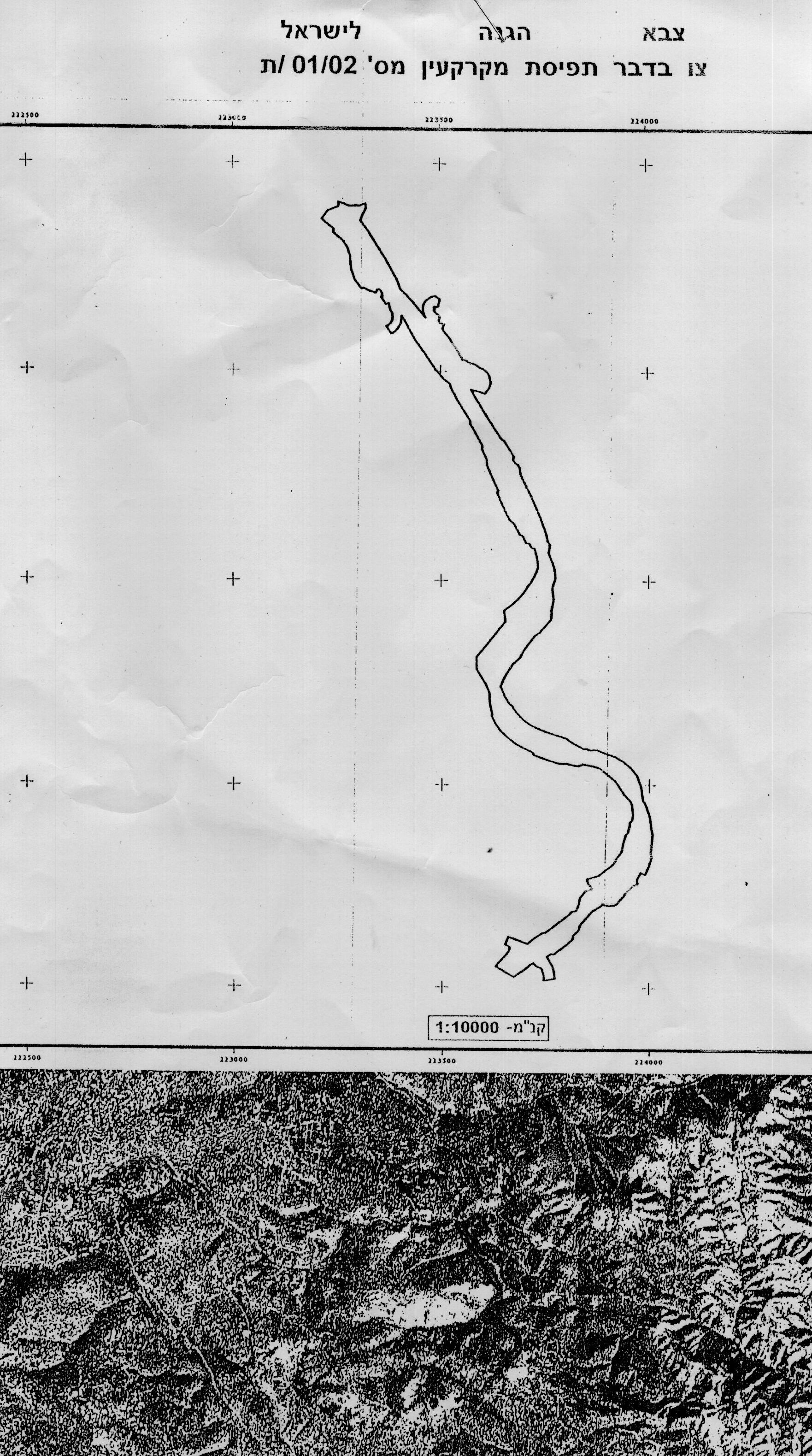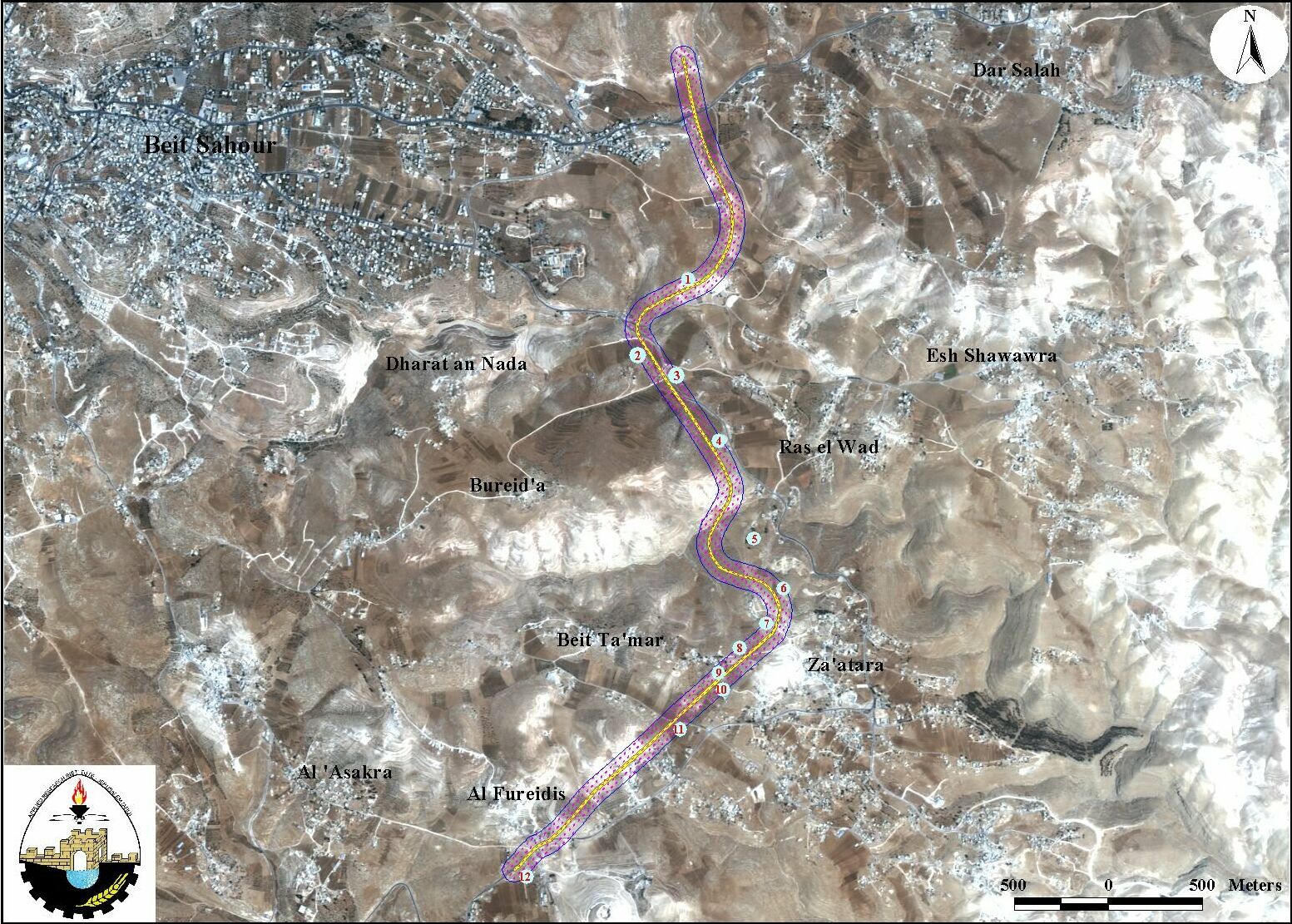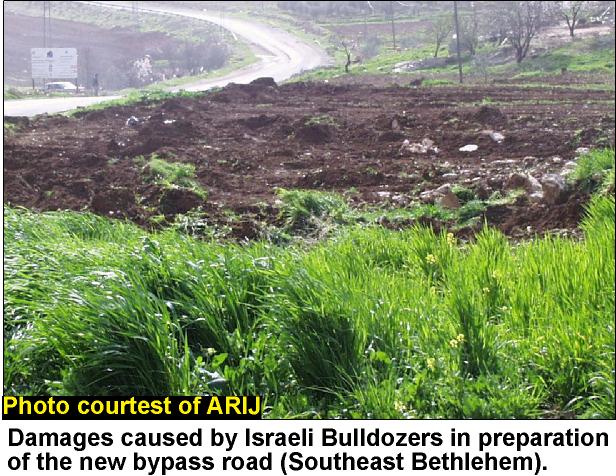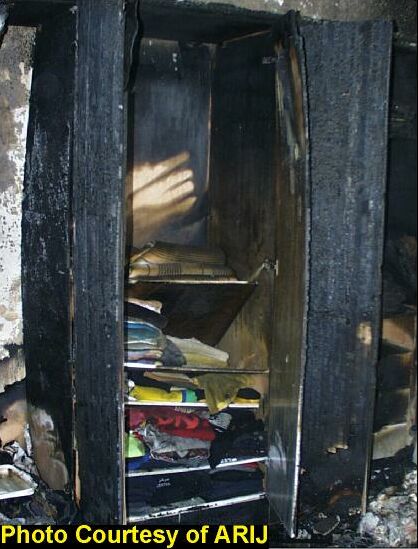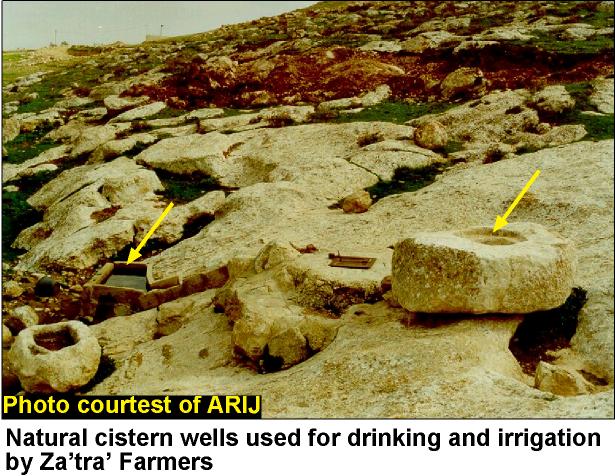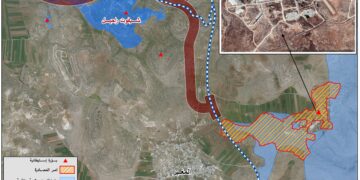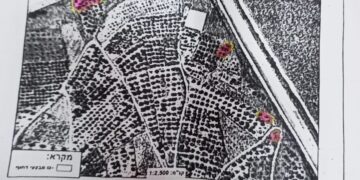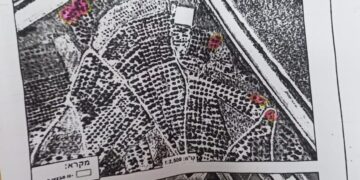Under the pretext of securing the Jewish settlements inside the West Bank and Gaza Strip, Israel is continuing its violation of all signed agreements. The interim agreement, article1, item 2 and 4 clearly state (.. the unity and integrity of the Palestinian people in the West Bank and Gaza Strip shall be maintained and respected..). The ''Lateral Roads'' or what people call ''bypass roads'' -because they are meant to circumvent (i.e. bypass) Palestinian built up areas, are now disconnecting Palestinian communities from each other. See Photo 1
Recently, the Israeli government commenced the construction of a new ''bypass road'' southeast of Bethlehem. The road will be constructed over Palestinian farmers' land of Beit Sahour and Bethlehem; also from Za'atra, Ras-El Wad, Tekoa, Al-Shwawreh and Al-Fureidis villages. Military order number 02/02/C was issued by Yitshak Etan, the IDF commander in the occupied territories, and stated that the land was seized for military use
ARIJ fieldworkers obtained a copy of the military order in which the seized area is shown. The GIS Unit at ARIJ digitized the planned road into the high resolution IKONOS Satellite image and came out with the following: See satellite image,
|
Road length |
5.5 Km |
|
Asphalt area |
90 dunums |
|
Total area, including security buffer zone |
740 dunums |
Source: ARIJ GIS DATABASE, 2002
This new bypass road will further isolate the eastern fringes of Bethlehem district from its surrounding Palestinian communities. See map 2
Map Two clearly shows that the northern end of the new bypass road will be connected to another new military road surrounding Abu Ghneim (Har Homa) settlement; click here for details . This in return will further complete the Israeli plan to marginalize and circulate Bethlehem district, especially after the announced isolation plan to ''envelope Jerusalem'' and to restrict the Palestinian build up areas.
Most of the areas that will be confiscated for the sake of constructing this road are agricultural lands. As a matter of fact, four of the landowners affected by the planned road were participating in a grain-test project called '' Improving Field Crops In The West Bank''. The project is funded by the Canadian Food Grains Bank and is administered by ARIJ in order to test the grains' profitability and productivity in the Palestinian environment. See photo 2
The villagers who are from Ras Al-Wad and Za'atra, offered that their land be used in the hope that they could improve on their earnings. Yet, it seems they will not be able to reap the fruits of their hard work because now a settlement by-pass road is coming through. Israeli bulldozers shaved a massive area of these cultivated lands. Also, more than 200 hundred olive trees are also under threat to be uprooted. See photo 3 & photo 4
A couple of house demolition orders have been handed to residents whose houses are located in or nearby the original master plan of the road. It is wroth mentioning here that around ten cistern wells used for drinking and agricultural purposes are threatened to be demolished. See photo 5 & photo 6
Upon further inquiry, ARIJ fieldworkers found out that there was more to the building of this by-pass road than just connecting two settlements. Activists from Gush Shalom had been following the case of this planned road and had come out with some interesting findings.
The road was planned for some time but was never implemented because of objections and protests. However, the National Union Party (Yisrael Beiteinu) was pressing for its approval along with other by pass roads in order to encourage the settlement activity in the West Bank. In fact, it turns out that the person pushing for the construction of that particular road was the head of the NU party, Avigdor Lieberman, who also happens to be Israel's National Infrastructure minister. Eager to get the budget endorsed before the March 1st deadline, Prime Minister Arial Sharon agreed to allow the road construction if the NUP voted in favor of the budget. Indeed, Gush Shalom found that the approval of the construction came just a week after the vote on the budget. Furthermore, it turns out that Lieberman either lives in Nokdim settlement or has an estate in it and frequents it often. Hence, the need for a new bypass road that would avoid him going through densely populated Palestinian areas. It is worth mentioning here that had the budget not been approved by March 1st, Sharon's Government would have fallen.
In the final analysis, it seems that ordinary Palestinians not only have to pay the price of Israel's grand colonization plans but they also have to suffer the whims of it's corrupt politicians.
Prepared by:
The Applied Research Institute – Jerusalem




